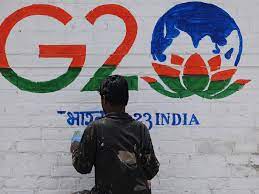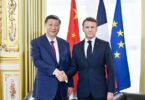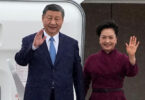The G20 Tourism Working Group Summit has picked up its agenda in Srinagar, the capital of Indian Illegally Occupied Jammu and Kashmir (IIOJK), an internationally recognized disputed territory under the UN resolutions. The conference is being held under three-grid high security and thousands of additional troops had been deployed in Srinagar to ensure the security of the G20 conference. Several key G20 members including China, Turkiye, and Saudi Arabia boycotted the event while the Special invitee Egypt also preferred not to participate in the controversial huddle. According to reports, the Indian government has made every effort to present a grand spectacle for the delegates visiting the occupied territory, and various projects from the Srinagar Smart City had been showcased ahead of the event in a bid to portray normalcy in the prevailing tense situation that badly failed due to the extensive security arrangements and a curfew-like situation in the occupied territory.
India has long been forcibly occupying Jammu and Kashmir over the past seven and a half decades and Kashmir remained one of the longstanding unresolved disputes on the agenda of the UN Security Council (UNSC) during this time. The Indian rulers themselves took the Kashmir issue to the United Nations and categorically acknowledged the need for a peaceful settlement of the issue by holding a plebiscite in the disputed territory under the UN’s mandate but treacherously delayed that process on one or other excuse in the past. Meanwhile, the Indian government conferred special status to Indian Occupied Jammu and Kashmir under Article 370 and Section 35 of the Indian constitution in 1954, while the purchase of property and registration of votes of non-Kashmiri Indians were not allowed under this act over the past decades. Later, the Modi-led BJP Hindutva regime unashamedly revoked Article 370 and Section 35 in August 2019 in a bid to change the demographics of the disputed territory through administrative and regulatory measures.
After having done all domestic legal, administrative, electoral, and Security measures, the Modi government has set the stage to hold a global G20 meeting in the disputed territory to give apparent validity to its unlawful actions of August 5, 2019, and thereafter. However, the government of Pakistan along with Kashmiri freedom activists and human rights groups raised their voices against Modi’s nefarious agenda at the global level. Meanwhile, UN Special Rapporteur on Minority Issues has recently criticized the event being held in Srinagar as an effort to deceive the world about the worst human rights violations in the valley. According to the UN official, human rights violations had risen dramatically in IIOJK since 2019 after the Indian government revoked the special status of the territory.
In fact, the Modi regime is currently pursuing a long-term policy to gradually change the status of the Jammu and Kashmir dispute through necessary changes in the Indian constitution, legal and administrative policies, and procedures to completely change the demography of the occupied region. Indian diplomacy is aggressively preaching and defending the so-called narrative about Kashmir as India’s integral part and internal issues, while at the same time, New Delhi has launched a propaganda campaign against Pakistan and the Kashmir freedom movement to defame and discredit them at the global level. Over the years, India’s hegemonism has exceeded its limit despite the fact that Modi’s regime has lost a huge chunk of its land during the recent stand-off with China. Multiple ethnic and religious groups in India had launched their freedom movements to get rid of the Hindu narcissist rule, while Kashmir and Punjab had become bleeding wounds of Indian democracy.
India has waged a brutal war against the Kashmiris to suppress their just struggle for their right to self-determination, but unarmed Kashmiris stood fast against unpredictable human rights violations, inhumane torture, and arbitrary detention by the Indian security forces. Kashmir youth had rendered unmatchable sacrifices during their freedom movement over the past seven and a half decades. Now India seeks to normalize its military occupation by instrumentalizing a G20 meeting and portraying an international seal of approval over its illegal and unilateral measures in the valley. However, the world has witnessed the true face of Modi’s Hindutva regime and its complicity with RSS extremist ideology. Therefore, the world’s civilized nations preferred not to be partners with Modi’s unlawful campaign to rescind the UN-recognized Kashmir dispute and sabotage Kashmiris’ just right to self-determination in love for Modi’s Hindutva regime. Although India might succeed in convening a failed G20 summit in a disputed region, however, New Delhi would never be able to implement its nefarious designs over 14 million Kashmiris, who are currently serving lifelong imprisonment in India’s Illegally Occupied Jammu and Kashmir (IIOJK). The government and the people of Pakistan had never paused their support for their Kashmiri brethren in the past and Pakistanis would continue their diplomatic, political, and moral support to Kashmir cause until the people of Kashmir get freedom from Indian draconian rule.







